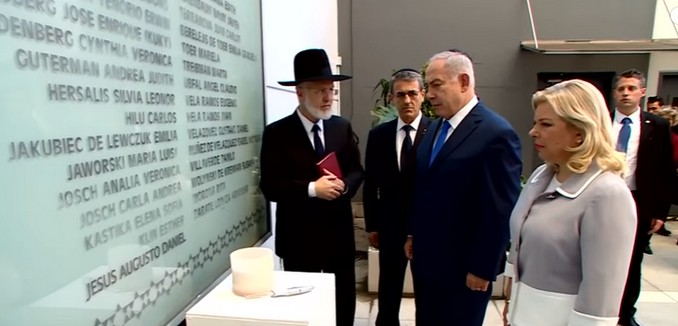Israel’s Prime Minister Benjamin Netanyahu’s historic visit to several Latin American countries this week could serve as a platform to promote regional cooperation against Iran’s involvement in global terrorism and Hezbollah’s activities in the region, Emanuele Ottolenghi and Michaela Frai wrote in The Jerusalem Post.
Latin America’s permissive environment for radical Islamic groups to establish its networks has been notorious, specifically, Iran’s proxy, Hezbollah, continues to operate in Latin America. Netanyahu should address this “inconvenient truth” during his trip this week and seek cooperation to counter Iran’s and Hezbollah’s activities in the region, the authors, respectively a senior fellow and research associate at the Foundation for Defense of Democracies recommended.
Hezbollah has used Latin America as a base for its terror-financing network for years, taking advantage of lax law enforcement, fragile institutions, and corruption. According to a 2016 report by The Washington Institute, Iran and Hezbollah continue to be “hyperactive” in the region. While Hezbollah operates terror cells in well-known hotspots such as the Tri-Border Area, its logistics, financing, and planning efforts are also ongoing elsewhere.
On Monday, during his visit to Argentina, Netanyahu spoke at the site of the Israeli embassy in Buenos Aires which was destroyed in the 1992 terrorist attack after a car bomb exploded outside the building, as well as the AMIA Jewish community center, which was rebuilt after the terrorist attack in 1994. In his speech, Netanyahu praised Argentine President Mauricio Macri for reversing the course taken by his predecessor, Cristina Kirchner, as he reopened the investigation into Iran’s involvement in the attacks and voided the memorandum of understanding with Tehran.
In the coming days, the Israeli prime minister will also meet with Paraguayan president Horacio Cartes. Ottolenghi and Frai, however, observed that although the country has become an Israel ally in the international arena, Hezbollah’s financing networks continue to be present and the country’s poor law enforcement continues to attract terrorism finance.
During the meetings in Colombia and Mexico, Netanyahu should address narco-trafficking and its link to Hezbollah’s fundraising activities, the authors recommended. Hezbollah’s ties to the Mexican drug cartels and the FARC, the Colombian terror group that has recently agreed to disarm, has been a concern for Unites States and Israeli lawmakers, as they have provided a strategic “attack venue against Israeli or other Western targets.”
A possible trip to Peru in the spring—where Hezbollah is also present—could allow Netanyahu to reiterate the importance of combating lawlessness and corruption that allow Hezbollah and Iran to conduct operations in the Western Hemisphere.
[Photo: IsraeliPM / YouTube]




